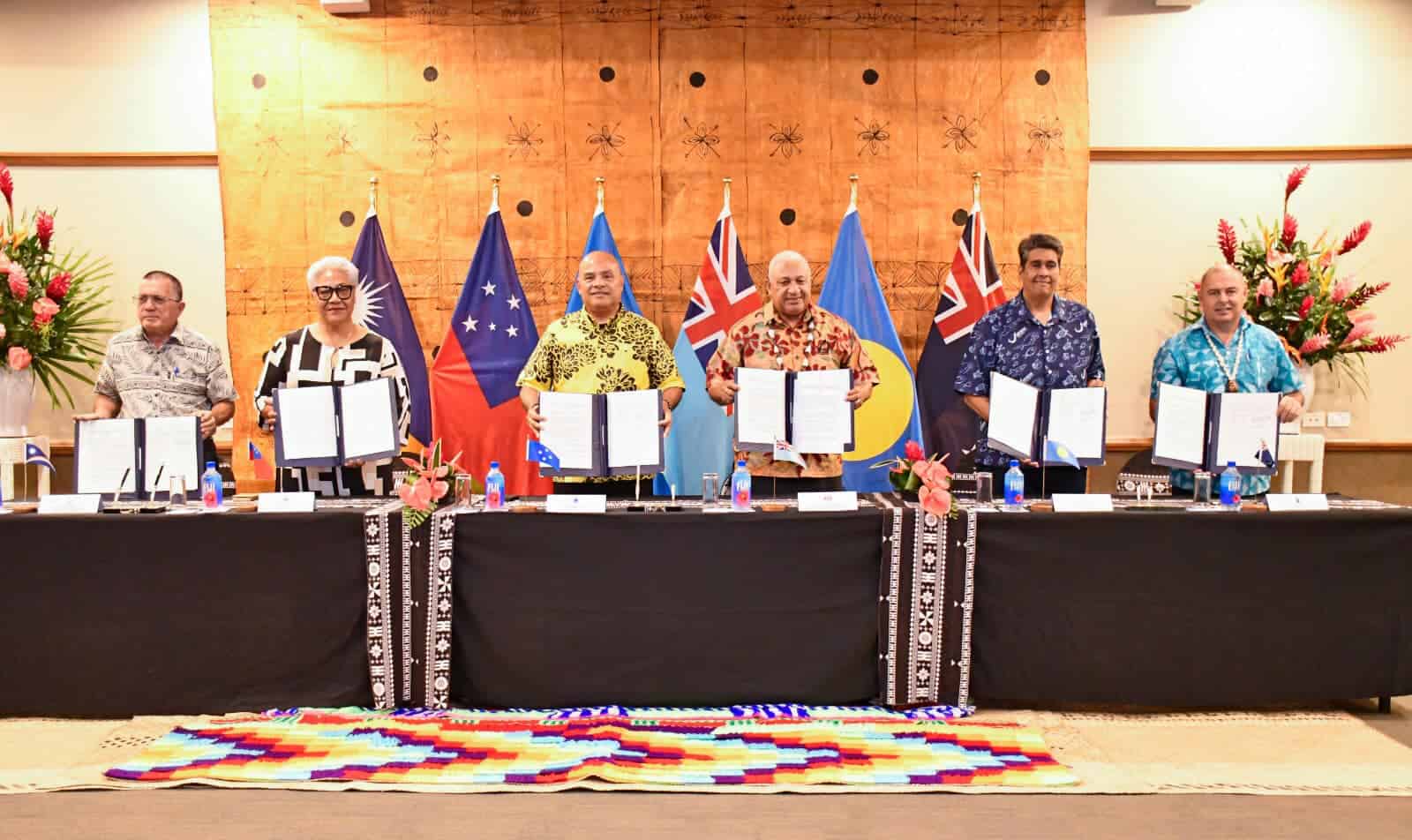The state of Pacific island solidarity in the midst of a serious crisis pertaining to climate change and the strategic competition between the United States and China seems to be weak. At a time when solidarity may be most needed, it seems to be most lacking. There are natural distinctions and geographic divisions between the north and south Pacific.
There are the “traditional colonial” divisions of Polynesia, Micronesia and Melanesia. There is the issue about how to deal with Pacific island territories and fully independent nations.
In between, there are varieties of “freely associated states” which require some definition.
In the midst of this concern over solidarity, some Pacific island states want to make sure that they emphasize their “solid” independent status. This means that Pacific island territories could be included in some forums, but not all. It also means that freely associated states are sometimes seen as “technically” independent, but not fully. This remains a subtext, but not an openly discussed sentiment.
For many of the nations south of the equator, the U.S-affiliated freely associated states are playing on the American team. Territories are on the bench. They aren’t even in the game, but some are eager to play.
What are the threats to this Pacific island solidarity? Almost all threats are explained as being external rather than internal. In the midst of dealing with climate change, many Pacific leaders are pushing Australia to adopt more aggressive measures to reduce their contribution to the carbon footprint. They are pushing Australia to accept “loss and damage” responsibility for climate change to date. In these conversations, Australia attracts a fair amount of negative commentary.
Although they may not be the main source of climate change, they are the biggest nation and polluter seen from nearby Pacific islands.
Both in the north and the south Pacific, there is some division about how to deal with the China-U.S. strategic competition. Some want to take advantage of the competition to secure more assistance. It is a logical but explosive approach. Almost all provide a kind of “pox on both your houses” approach even though most favor the United States. But even in the midst of this discussion in which the U.S may be favoured, the Americans come in for severe criticism.
The most common one is that the U.S-Pacific Partnership initiative is underfunded. It needs to be more robust and the U.S also needs to accept “loss and damage” for climate change. This kind of reparations approach to climate change is growing and each nation must assess how it will do with it. Both Australia and the United States are attracting their fair and unfair share of criticism.
The role of these large nations is framed in conversations about “neocolonialism” and the desire to “decolonise” and enter into a “postcolonial” era. Almost everyone concedes that neocolonialism exists in a variety of forms. It comes in direct influence through ministries of foreign affairs, influence peddling through assistance programs, and indirect influence through trade and economic relations.
This raises the question about the nature of the “solid” independence of the Pacific island nations. Is any nation today truly independent? Are they all dependent upon external nations? While it is true that the entire world is interdependent, there are still some nations that are more dependent than others. Where do the Pacific islands stand in this continuum?
Where do territories stand in this continuum? Is independence a kind of continuum rather than an absolute category? The nature of international relations today is constantly being redefined in light of globalisation and global challenges. Sometimes, there is some spill over between territories and independent nations. The boundaries seem fungible and there seems to be some room for regional solidarity. This is most evident in Pacific-wide organisations like the Pacific Community or the Secretariat of the Pacific Regional Environmental Programme (SPREP).
But just when you think the trend is moving in a more connected region, the equator becomes a dividing line. Last year’s Micronesian move to disengage from the Pacific Island Forum was clearly generated by an internal disagreement. But it wasn’t long before it was given a “neocolonial” explanation.
When Guahan Gov. Lou Leon Guerrero articulated a desire to join the PIF, it wasn’t long before this was characterised as an “American gambit”— a neocolonial move. Apparently, we are all continuing victims of the coloniser. I get that. But there are times when we must understand that we are victims of our own actions.
It is true that the nation-state continues to be the building block of international relationships. That hasn’t quite changed yet. But in the midst of international relationships, organisations, NGOs, the internet and WhatsApp, it seems like a different reality is emerging. In a world where only a handful of nations are “solidly” independent, there is hope for territories yet.
Dr. Robert Underwood is the former president of the University of Guam and former member of the U.S. House of Representatives.
